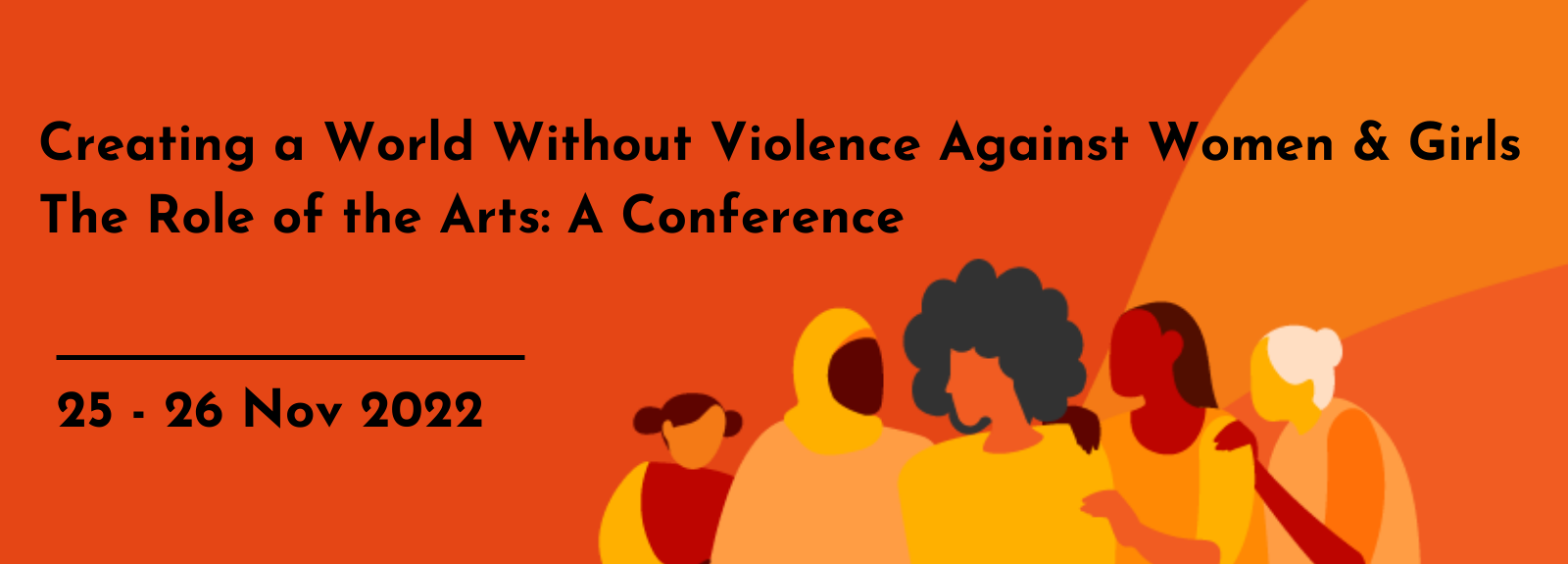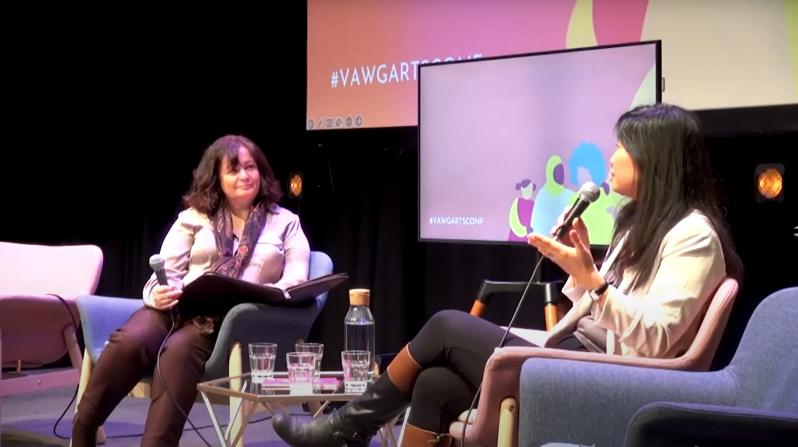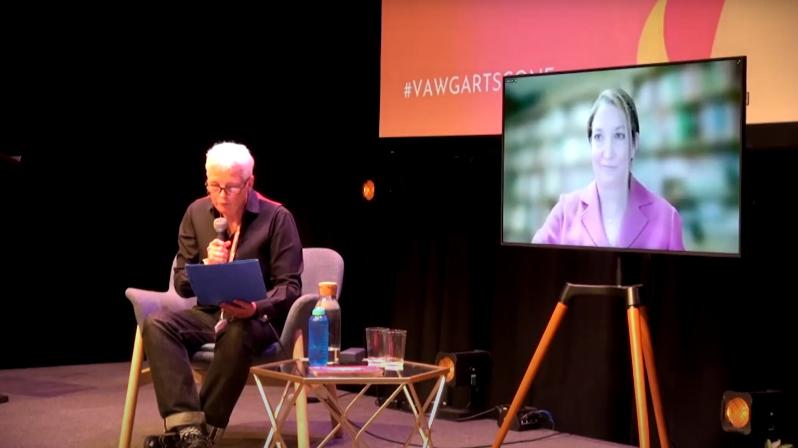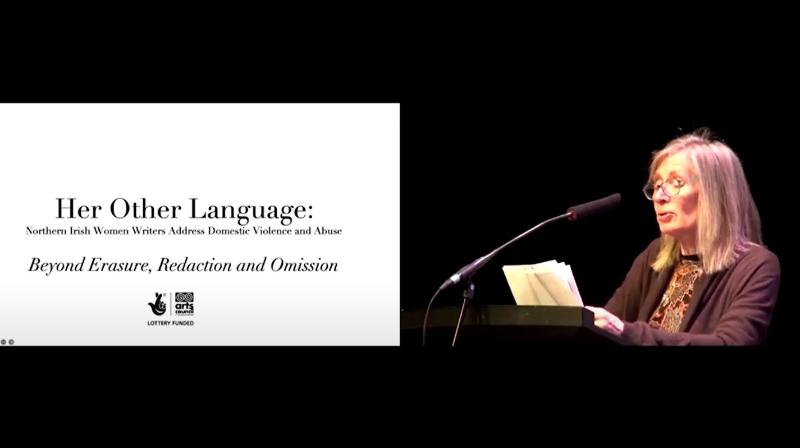Violence Against Women & Girls 2022
Creating a World Without Violence Against Women & Girls: The Role of the Arts
Fri 25 - Sat 26 Nov 2022
This international hybrid conference on the role of creative activism in ending violence against women and girls was hosted by the Crescent Arts Centre, Belfast and coordinated by Dr. Hilary McCollum and the Seamus Heaney Centre at Queen's University, Belfast.
The following video series was filmed by the team at the Crescent Arts Centre and edited by Suzi Bloom. These recorded papers encapsulate the majority of the research from our wonderful array of activists, creative practitioners, academics and survivors.
Keynote Speakers
Panel 1: New Narratives
Florentina Gümüş and Dr Yeliz Biber Vangölü (Ataturk University), and Yasaman Taheri (University of Tehran), chaired by Dr Trish McTigue (Queen's University Belfast).
Panel Two: Minoritised Women and Girls
Dr. Kasey Jones-Matrona (University of Oklahoma), Laura Roldán-Sevillano (University of Zaragoza), and Hilary McCollum (Queen's University Belfast), chaired by Dr Nazia Akhtar (International Institute of Information Technology, Hyderabad).
Panel Three: Contextual Violence
Réaltán Ní Leannáin (Author and Activist), Dr Louisa Parker (aka Una, Oxford Centre for Criminology), Dr. Keisha Allan, (Baruch College, New York), and Dr Nazia Akhtar (International Institute of Information Technology, Hyderabad), chaired by Sharon Dempsey (Queen's University Belfast).
Panel Four: Changing the Lens
Sharon Dempsey (Queen's University Belfast), Amy Beddows, (London Metropolitan University), Stella Godmet (Canterbury Christ Church University), and Maria Butler (University College Cork), chaired by Marine Berthiot (Edinburgh University).
Panel Five: Re-Reading the Past
Prof Moyra Haslett (Queen’s University Belfast, Prof Ellen Stockstill (Penn State Harrisburg), and Payel Ray (West Bengal University), chaired by Lucy Cullen (Queen's University Belfast).
Panel Six: Violence in the Media
Violence Against Women and Girls Research Network: Ankita Mishra (University of Sheffield), Melody House (University of Strathclyde), Zoё Asser (Queen Mary University), Amy Beddows (London Met University).
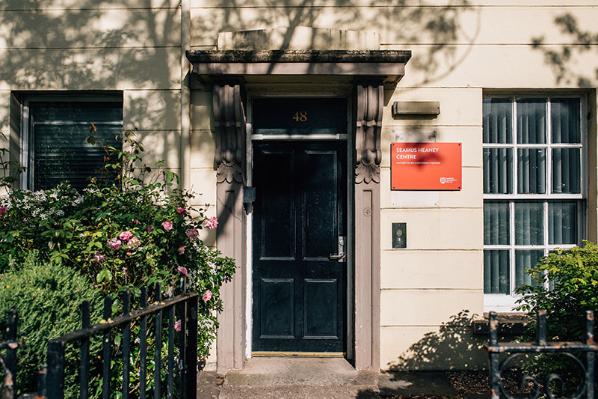
The Conference is hosted by the Seamus Heaney Centre at Queen's University, and organised by Dr Hilary McCollum, with guidance and support from colleagues across the University.
Read the full conference schedule below...

